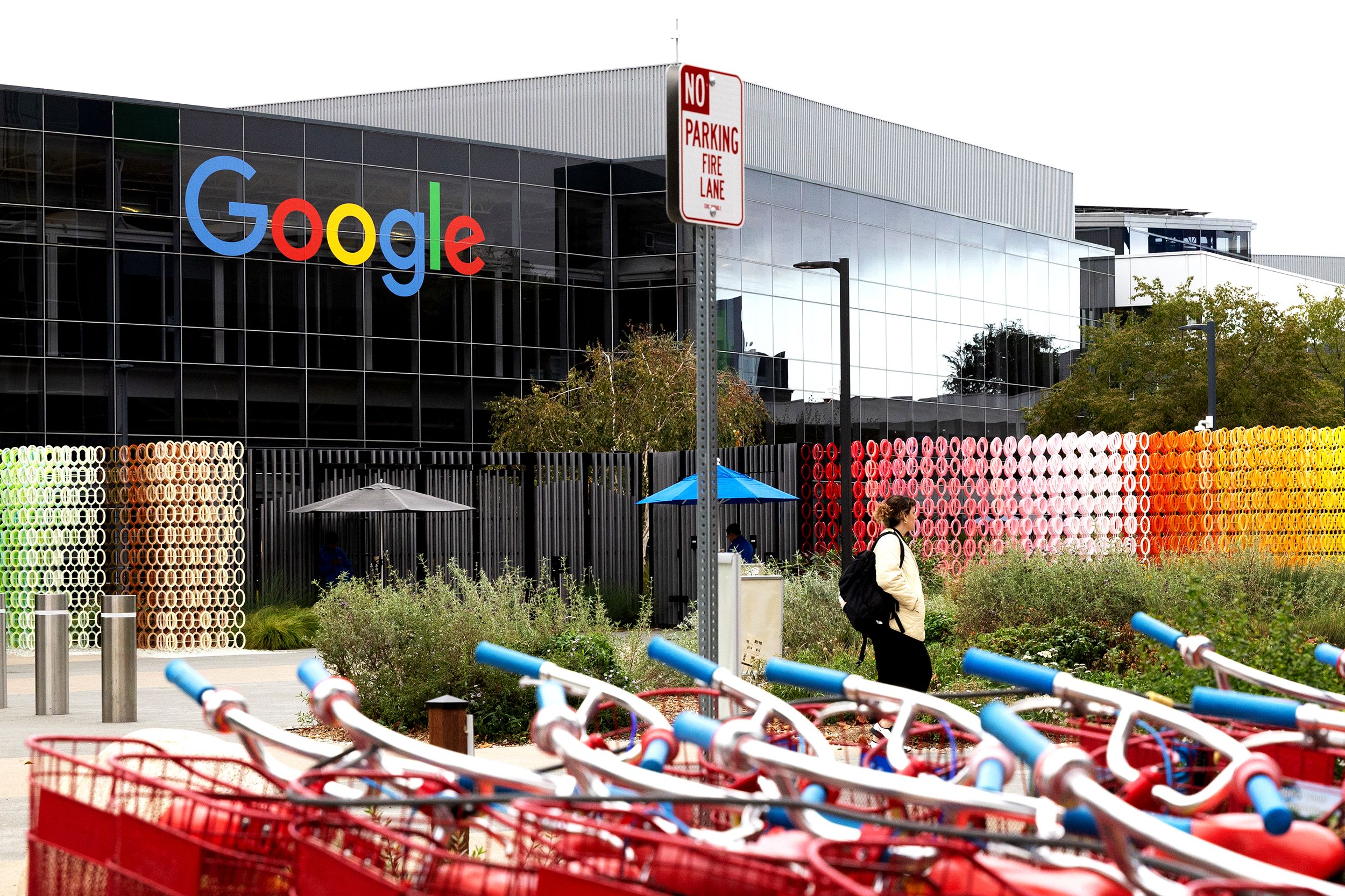Some US tech giants are abandoning their decade-long practice of publishing statistics about the gender and racial makeup of their workforce. Google, which helped pioneer the release of annual diversity, equity, and inclusion reports, has no plans to disclose the information this year, according to four employees familiar with the discussions internally. Microsoft and Meta also will not be publishing diversity reports and data this year, spokespeople for the companies confirmed to WIRED.
The broad loss in transparency, which has not been previously reported, could obscure the impact of President Donald Trump’s anti-DEI policies on the tech workforce. It could also raise barriers for workers and civil rights groups seeking to reshape tech companies to better reflect the makeup of the countries in which they operate.
The decision of these three companies, which collectively employ hundreds of thousands of people globally, also stands in contrast to industry peers. Apple, Amazon, and Nvidia all released new diversity data this year.
Google did not respond to a request for comment for this story.
Disclosures over the past decade showed Google and dozens of other tech companies steadily hiring more women and racial minorities, though these groups were still underrepresented in technical and management roles relative to their overall populations in the US. Some companies also published additional data showing higher attrition rates for racial minorities and a lack of diversity in terms of disabled or LGBTQ employees.
Microsoft chief spokesperson Frank Shaw said in a statement to WIRED that the company is not doing “a traditional report this year as we’ve evolved beyond that to formats that are more dynamic and accessible,” including “stories, videos, and insights that show inclusion in action.” He added that the company’s “mission and commitment to our culture and values remain unchanged.”
Meta spokesperson Tracy Clayton confirmed the company will not be publishing a diversity report this year. He declined to elaborate on the decision.
“The Facts”
Following pressure from civil rights activists including Rev. Jesse Jackson and his Rainbow PUSH Coalition advocacy group, Google released employee diversity data for the first time in 2014. Several other tech giants followed suit later that year.
Tech executives said that they had realized the need to be more candid about the underrepresentation of some demographic groups. “It’s hard to address these kinds of challenges if you’re not prepared to discuss them openly, and with the facts,” Google’s people operations leader Laszlo Bock wrote at the time.
Google went on to release 11 annual reports in the years that followed. This included data from 2013 through 2023, with the last report published in June 2024. Meta released data spanning 2014 through 2022. And Microsoft’s final update of this kind came in October 2024.
Trump’s return to the White House in January shifted the corporate conversation about DEI. He ordered federal agencies to “combat illegal private-sector DEI preferences, mandates, policies, programs, and activities,” including by potentially suing companies or fining them for prioritizing identity over merit in employment decisions.
Major employers including Meta and Google suspended minority hiring targets and dropped some references to “diversity, equity, and inclusion” from their websites and regulatory filings around the time of Trump’s order. Meta and Google also significantly reduced funding for DEI initiatives, such as events, training, and recruiting drives aimed at improving representation of minority groups, according to company announcements and employees.
Google employees who spoke with WIRED say that a number of colleagues who focused on diversity-related issues have left the company or been assigned to new priorities this year. Employee resource groups have faced new limitations on their programming, and the company has even curtailed employees from posting fliers about community events on physical bulletin boards in its offices, these workers allege.
Parul Koul, president of the Alphabet Workers Union, which represents over a thousand workers at Google and other Alphabet companies, alleges Google’s decision to not issue a diversity report is an appeal to the Trump administration and an attempt to hide possible declines in workforce diversity. “It’s a glaring omission,” Koul says.
The White House did not respond to a request for comment.
Staying the Course
In the months after Trump retook office in January 2025, Apple, Amazon, and Nvidia continued to publish updated diversity statistics. None would comment on the record about their decision to continue the practice. Each of their disclosures showed a corporate workforce that was roughly 70 percent male globally and 40 percent white in the US as of the end of last year.
Apple and Amazon also continued to voluntarily publish their annual reports to the US Equal Employment Opportunity Commission, which requires workforce race and gender breakdowns from businesses with over 100 employers. The typically confidential filings, known as EEO-1 reports, have also at times been available to the public under freedom of information laws. But recent federal court rulings and the Trump administration’s stance on DEI threaten to obstruct future access.
In the past, businesses’ voluntary release of the EEOC filings and accompanying DEI reports have helped inform outside advocacy campaigns as well as lawsuits brought by current and former employees who alleged their workplaces discriminated against them based on their race or gender. Last year, the EEOC released a report based on over a decade of tech industry data alleging that “discrimination likely contributes to the relatively low employment of women, Black workers, Hispanic workers, and older workers in high tech.”
Rights activists have described DEI programs as essential to fostering equitable hiring, and ultimately, creating well-rounded teams that are better able to understand customer needs and develop more inclusive consumer experiences. Yusef Jackson, who now leads the Rainbow PUSH Coalition, says the group would fight the nondisclosure of diversity data. “This is about business, not identity,” he says. “The companies that maintain a workforce that better mirror the communities are going to perform better.”
Julie Owono, executive director of the nonprofit Internet Sans Frontières, which advocates for tech giants to combat online hate speech in countries outside the US, says she believes DEI becoming a lower priority has led some trust and safety teams to take longer to respond to her requests. “I sense there is a lot of caution,” she says. But as the divide on releasing diversity data highlights, some companies are staying the course.




